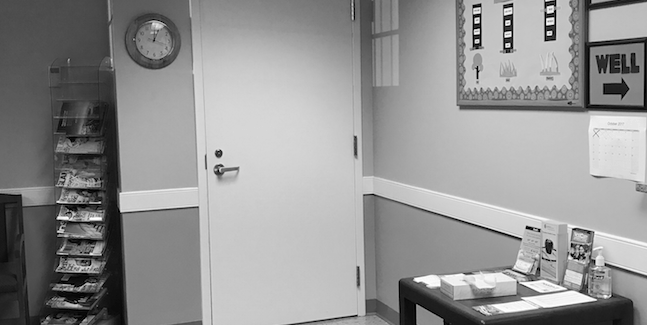UMW health officials advocate for vaccinations
4 min read
The Blue & Gray Press
By MIKAYLA MCDONALD
Staff Writer
Vaccines have eradicated infectious diseases like smallpox, and reduced others such as polio and measles. But recently, vaccines have been placed at the epicenter of various ethical controversies.
In recent news, there have been reports of an outbreak of measles across southwest Washington State and northwest Oregon where health officials have stated that there have been accounts of over 50 people who contracted the disease.
“Part of the problem is people nowadays do not remember the days without vaccinations, so if you talk to older adults, they remember having whooping cough, they remember having measles, and they remember people who have died from those things,” said Sarah Fredell, who has worked at UMW for seven years as a registered nurse (RN). “Vaccination is an easy way to keep people healthy- and it is safe.”
Measles is a serious viral infection that is easily spread through the air by little droplets in connection with a simple cough or sneeze. According to the Centers for Disease Control and Prevention (CDC), “Measles starts with fever, runny nose, cough, red eyes, and sore throat. It’s followed by a rash that spreads over the body. Measles is highly contagious and spreads through coughing and sneezing.”
Fredell stated that UMW follows the CDC and American College Health Association guidelines for what vaccinations they require.
“Students are required to have a current tetanus shot, two MMR shots, and the polio series. We also highly recommend Hepatitis B and meningitis vaccines; however, you can sign a waiver for either of these two vaccines. We also recommend people have chicken pox, hep A, HPV vaccines, and meningitis B vaccines,” said Fredell.
Health officials have insisted that students have a responsibility to get all of their vaccinations, not only for their own safety, but to safeguard others that might have legitimate reasons for why they cannot receive vaccinations.
“In order to be exempt from a vaccine, people can sign a religious waiver that is allowed by law in the commonwealth. This form must be filled out and it has to be notarized. Other exemptions are for medical reasons as the MMR vaccine is a live vaccine, and people with compromised immune systems cannot have the vaccine,” said Fredell.
“This is just another reason that everybody else that is able to get the vaccine should get it as there is something called herd immunity where people are immunized around them, so people who cannot get immunized are protected from the disease,” she added.
Cate Ernest, a sophomore biology major, is in favor of mandatory vaccination because they “cause development in immunity to prevent diseases in individuals, as well as others.” However, she does understand that there could be cases for why people would not want to receive them.
One of the primary arguments used to oppose mandatory vaccinations is the claim of religious exemption. Although the First Amendment to the Bill of Rights forbids Congress from making any law that prohibits the free exercise of religion; others argue that an individual’s freedom to practice religion may be restricted when doing so encroaches on the wellbeing of their fellow citizens.
“Vaccines prevent people from coming down with illnesses that are very preventable, and they decrease the time people spend going to doctor’s offices and hospitals. And a lot of these diseases have very serious consequences as far as long term disabilities and even death. And it is all preventable with a shot,” said Fredell.
There are a few clinics around the Fredericksburg area that offer vaccinations- one being the health department which is available at a reduced cost, any clinics that are approved for by an individual’s health insurance, and any local pharmacies. The two closest to campus are Giant and CVS.
“We actually have Giant come on campus on move-in-day and they bring vaccines, so if you are missing any when you have turned in your health records and have not gotten them yet, you can get them. Giant sets up in the University Center and its pharmacy will administer the vaccinations and will bill your insurance,” said Fredell.
Maria Cornett, a sophomore social work major, has worked at a local CVS Pharmacy for one year as a pharmacy technician. Cornett stated that she regularly sees patients that come in needing drugs or medication to treat diseases that are otherwise preventable with vaccination.
With that being said, Cornett is in favor of vaccination.
“I think it is worth my health to do it,” said Cornett.


